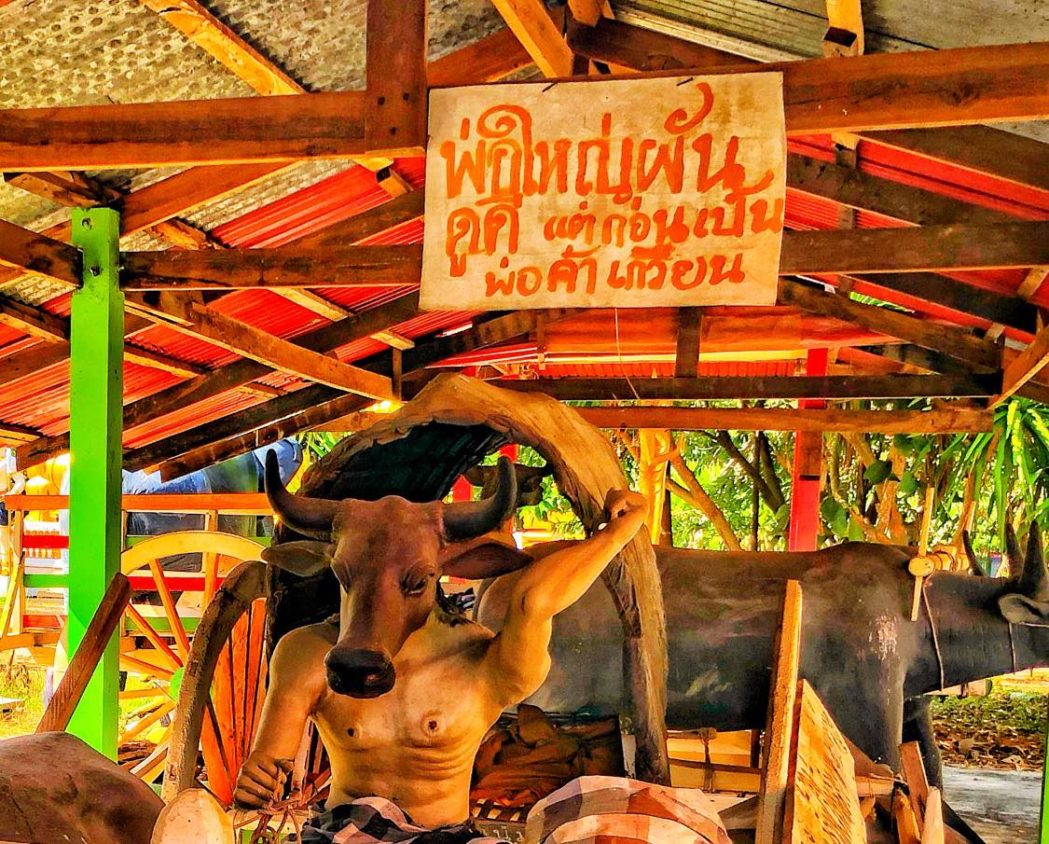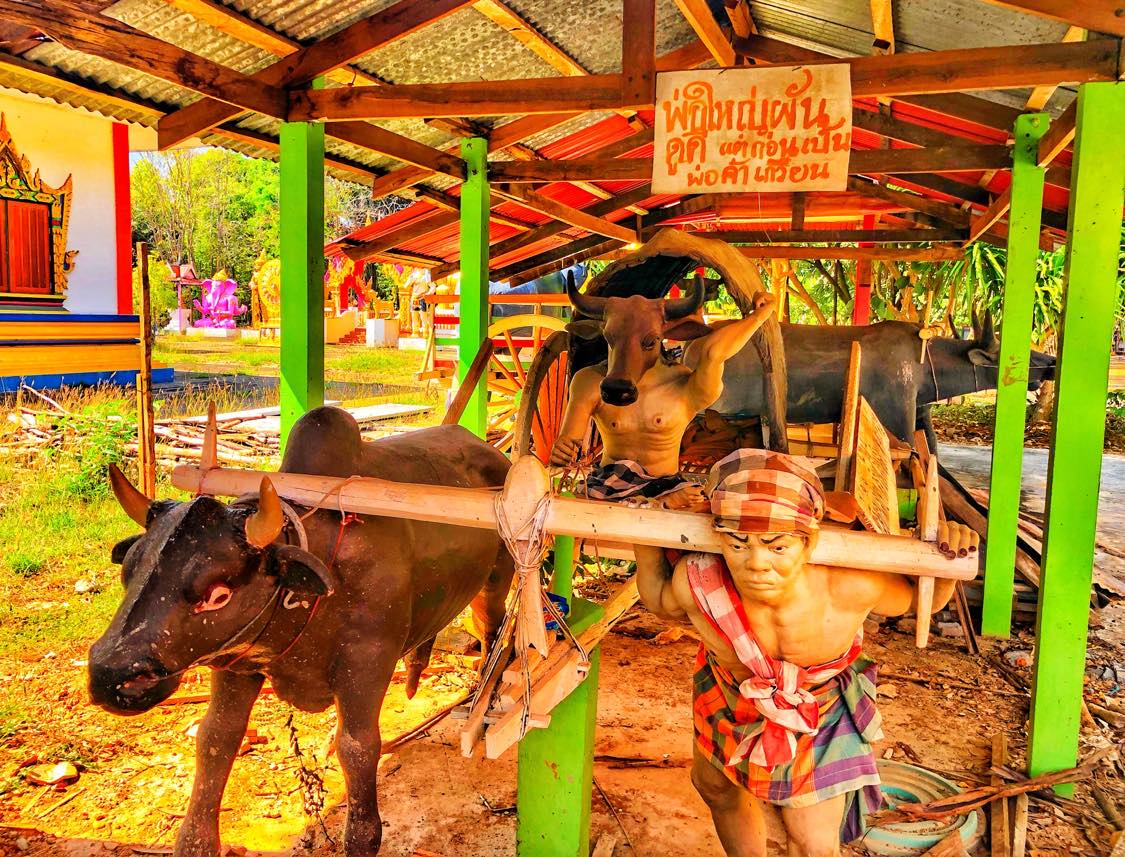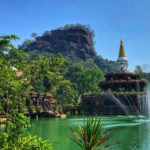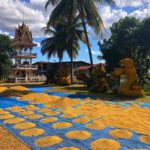
Northeastern Thai Temples with a Sense of Humor

When people think of Thai temples, they don’t usually think of sacred places with a sense of humor. But indeed many Thai temples (and the monks who live there) do have a keen sense of humor. This is especially true in the village temples of Northeastern Thailand. We were recently reminded of this fact when visiting Wat Ban Noi Hua Khu, a jewel of temple located in the rural village of Ban Noi, which is next to the Huai Sai Reservoir.
Wat Ban Noi Hua Khu is quite impressive for a little village temple. It has a beautiful variety of Buddhist and Hindu sculptures and artwork, as well as intricate architecture. We have visited the temple numerous times, as it is located near our house, and thought we had seen all there is to see at the temple. But as is often the case with Thai temples, there is something you seem to have overlooked during your last visit.

What we discovered this time at Wat Ban Noi Hua Khu were statues that displayed the sense of humor of the temple and resident monks. Located under a shed was a rural scene of statues honoring the vital role bulls and water buffalo play in the lives of Isaan farmers, while gently poking fun of the businessmen who simply profit from the hard labor of the animals and farmers.
The scene includes an Isaan man and bull pulling a wagon that is driven by another man with a bull’s head (an Isaan Thai version of the Greek Minotaur). Above the scene is a sign that reads: “พ่อใหญ่ผันดูดี แต่ก่อนเป็นพ่อค้าเกวียน”, which might be loosely translated to mean “Big Daddy is now looking good! Formerly he was a wagon merchant.” Although now looking good, Big Daddy doesn’t seem too happy in his new role.
So, if you are ever visiting Huai Sai Reservoir to take advantage of its beautiful bike and walking paths, be sure to drop by the nearby Wat Ban Noi Hua Khu to enjoy the uniqueness of this Northeastern Thai temple.
- How Men Vs. Women Speak Thai - May 13, 2024
- The Hidden Dharma of Thai Language & Culture - May 11, 2024
- The Royal Ploughing Ceremony in Thailand – A History - May 8, 2024




